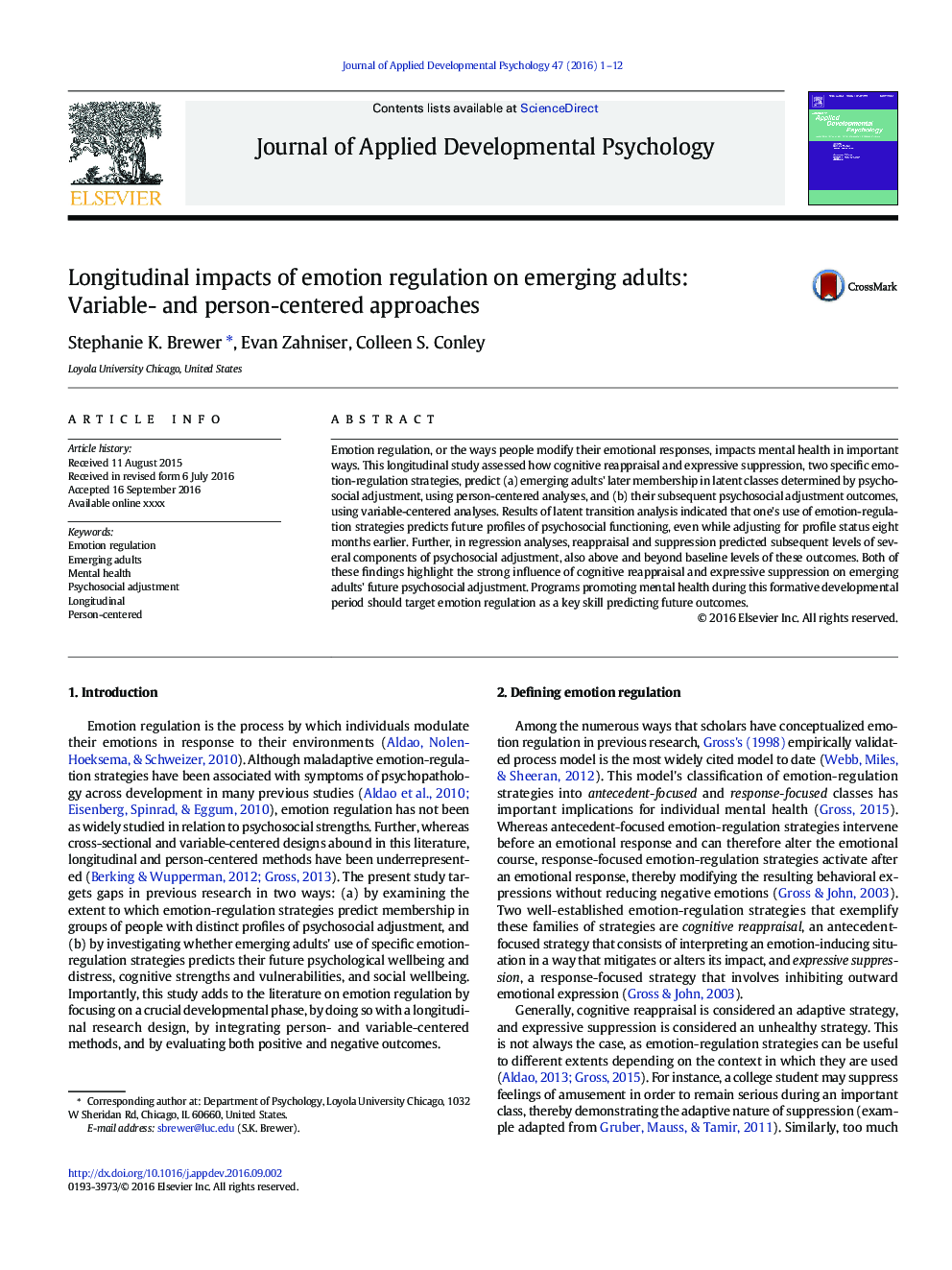| Article ID | Journal | Published Year | Pages | File Type |
|---|---|---|---|---|
| 4939168 | Journal of Applied Developmental Psychology | 2016 | 12 Pages |
Abstract
Emotion regulation, or the ways people modify their emotional responses, impacts mental health in important ways. This longitudinal study assessed how cognitive reappraisal and expressive suppression, two specific emotion-regulation strategies, predict (a) emerging adults' later membership in latent classes determined by psychosocial adjustment, using person-centered analyses, and (b) their subsequent psychosocial adjustment outcomes, using variable-centered analyses. Results of latent transition analysis indicated that one's use of emotion-regulation strategies predicts future profiles of psychosocial functioning, even while adjusting for profile status eight months earlier. Further, in regression analyses, reappraisal and suppression predicted subsequent levels of several components of psychosocial adjustment, also above and beyond baseline levels of these outcomes. Both of these findings highlight the strong influence of cognitive reappraisal and expressive suppression on emerging adults' future psychosocial adjustment. Programs promoting mental health during this formative developmental period should target emotion regulation as a key skill predicting future outcomes.
Keywords
Related Topics
Social Sciences and Humanities
Psychology
Applied Psychology
Authors
Stephanie K. Brewer, Evan Zahniser, Colleen S. Conley,
